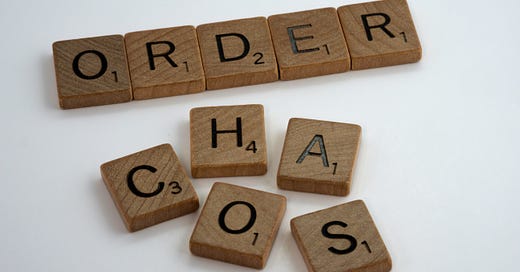Distractions and Productivity: 5 Helpful Ideas
A few thoughts on staving off in-center interruptions as a BCBA.
Whether you’re working in schools, centers, or homes, we all can agree that dealing with interruption is an inherent feature of being a BCBA. This can be challenging. Mostly because BCBAs are what Peter Drucker calls “knowledge workers”. Knowledge workers are people who are essentially paid to use their brain to solve specialized problems. Knowledge workers make a plethora of informed, educated decisions throughout the course of a given day. BCBAs certainly fit the bill here. We write goals, coach therapists, conduct assessments, rewrite behavior plans, and are expected to produce solutions to complex problems. But, our mental resources are often in need of replenishment at any given moment. In my early stages of certification, I ran into a problem. I didn’t know how to preserve and sustain mental resources. Like so many new clinicians, I didn’t recognize how it all worked. Is there a gage that tells you when your brain is about to hit “E”?
There’s a false belief that I fell victim to as a brand new BCBA. I initially thought that mental exhaustion was a good thing. “I am mentally exhausted because I am working hard!” I thought. “And, if I’m working hard, I’ll be clinically productive, right?”
I was way off.
Why was this narrative problematic? As things went on, I equated mental exhaustion with clinical productivity. In fact, I sought out mental exhaustion. I allowed interruption, disruption, and distraction to run my day.
I told myself that I was “being there for my staff” and remaining “flexible” in my leadership. But, it wasn’t true. I was actually introducing chaos and interruption to make myself tired…and then used that to fool myself into thinking I was productive.
I burnt out.
It is well documented that the enemy of productivity is distraction and distraction is brought about through multi-tasking. I drifted away from consultations with learners only to lose myself and watch my day get away from me.
Being a team player is important. Being flexible is important. Only in moderation, however. Leaving consultations to attend to the needs of clients, therapists, problem behaviors, and involving ourselves in every conflict is not a sustainable way to do our job. Certainly there are days that require us to do these things, and rightfully so. And there will be situations where our work environments make it almost unavoidable, no matter how hard we fight the distraction. However, one of our most important responsibilities to our learners, and ourselves, is to take responsibility for the finite nature of our mental reserves…not to mention the limited time we have with our learners.
After awhile something dawned on me. First, I realized my brain was incredibly crucial to helping my learners succeed. Treating my brain the same way I treated my gas tank, my bank account, and my cell phone battery had to become a priority. Second, if distractions and multi-tasking were extracting those precious mental resources, then it was arguably a clinical responsibility of mine to monitor, assess, and find a solution for the way I was handling interruption and distraction.
In my discussions with other BCBAs, it turns out I wasn’t alone! Today I share a few things that immediately helped me in dealing with distraction and interruption. Let me know what you think!
I wrote down what was distracting to me. I began writing down what distracted me as it happened. This simply prompted me to watch my behavior. It’s a miracle how simply noticing the thing that distracts you can cut this problem in half.
I made whatever I was supposed to be doing “air tight”. I tried—at all costs—to NOT leave whatever I had scheduled myself to do. If I was consulting with a learner, it was important for me to be with THAT learner. I realized it wouldn’t be fair to me if my dental hygienist frequently left to attend to other patients in the middle of a routine teeth cleaning. That would be super weird. That same standard of care should hold true for my learners.
I made a “rule” for leaving the thing I was doing. I came up with a rule of thumb for myself for when it was okay for me to leave a consultation (or whatever it was I was doing). It was kind of a behavior plan for myself—a reactive strategy with an “If/Then” statement. How intense should a problem behavior be for me to leave what I’m doing to assist? Which phone calls should I answer and from whom? Which learners (or staff) will I always stop to help? Work with your supervisor or manager to come up with answers to these questions.
I found a way to delicately say “no”. I came up with a phrase for how I would let staff members know that I couldn’t come help them when they had distracting inquiries. I needed to reshape their behavior without sounding dismissive and inaccessible. I find it hard to say “no” to people! This was crucial for me. I actually practiced the phrase by myself.
I read A Liberated Mind by Steven Hayes. A game changer for me that changed the relationship I had with my mind (especially at work). A must read!
Keep in mind, all of this worked for me. What do you do to fend off distraction? What strategies have you used? What haven’t? Any other topics you want me to talk about? Please comment or reply! Love hearing your thoughts!
So happy to have you along for the ride! -Martin




